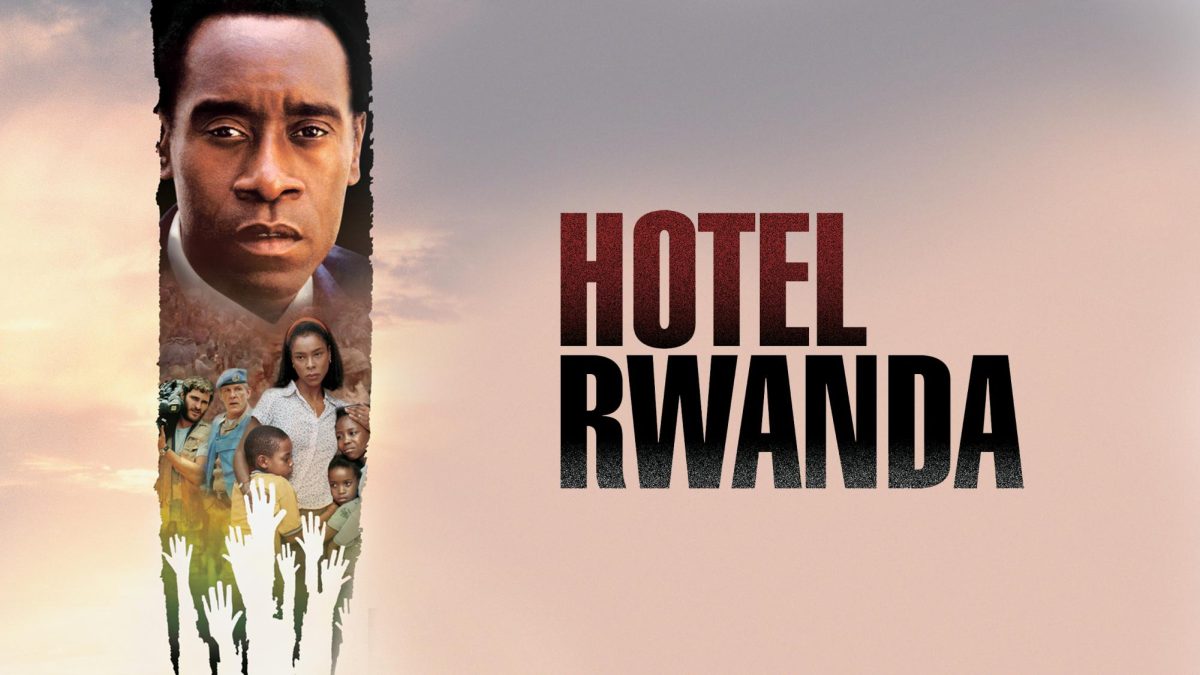“Hotel Rwanda,” a 2004 film directed by Terry George, offers a harrowing depiction of the 1994 Rwandan genocide. The film centers on Paul Rusesabagina (Don Cheadle), a Hutu hotel manager who, despite the escalating violence, uses his connections and ingenuity to protect over a thousand Tutsi refugees at the Hotel des Mille Collines.
There is a showing of the systematic extermination of the Tutsi by Hutu extremists, aided by the indifference and complicity of the international community. Rusesabagina’s actions, though driven by personal morality and a desperate desire to protect his family and under his care, highlight the stark contrast between individual heroism and the failure of global institutions. The film powerfully portrays the brutality of the genocide, from the casual slaughter in the streets to the agonizing wait for international intervention that never fully materializes.
The cinematography and sound design effectively immerse the viewer in the chaotic and terrifying atmosphere of the crisis. The film doesn’t shy away from the graphic realities of the violence, making the human cost viscerally felt. The emotional core of the film rests on Rusesabagina’s moral struggle, his resourcefulness, and his unwavering commitment to saving lives. The supporting cast, portraying diverse characters from refugees to UN peacekeepers, adds depth and complexity to the narrative.
While criticized for certain historical inaccuracies, “Hotel Rwanda” remains a potent cinematic testament to the Rwandan genocide, leaving a lasting impact on audiences and serving as a powerful call for global responsibility in the face of atrocities. Its enduring legacy lies in its unflinching portrayal of human resilience and the urgent need for international intervention to prevent such tragedies from recurring.








